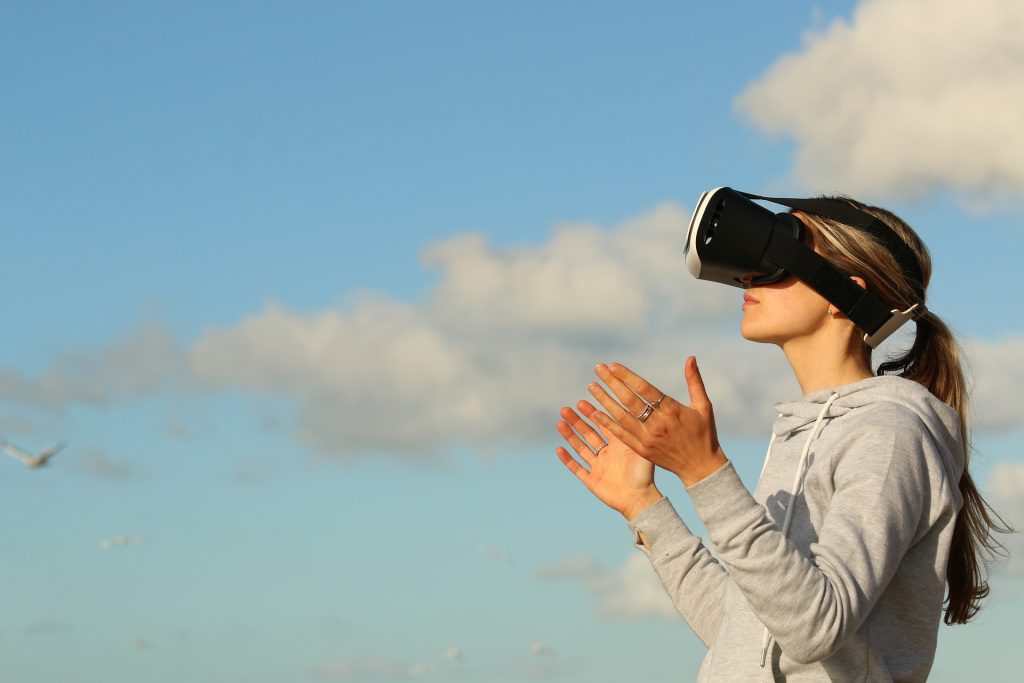This post is also available in Dutch .
The corona-crisis has changed our daily routine dramatically, and hasn’t spared our holidays either: we are asked to limit travelling as much as possible and opt for closer destinations. So, if this summer you were picturing yourself drinking mojitos on an exotic island… well, forget it. Instead, staycation is the current trend.
There is, however, something we still can try to “feel” that ocean breeze and boiling hot sun. Virtual reality (VR) is the key. Just put on your (arguably fashionable) VR glasses and make your dream holidays a reality, without having to risk a long trip.
VR-glasses make the experience feel real. But how is it for our brains?
VR is becoming very popular and is being used for many purposes, ranging from clinical practive, as in treatment of anxiety, to recreational uses, such as meeting with the dinosaurs in an unconventional safari. Nowadays, VR seems the way to go to reach those holiday destinations we could not visit otherwise. It brings us to faraway places by playing with our brains… quite well, actually!
Researchers from the University College in London tried to understand how VR navigation affects our brains. To do so, participants explored a VR environment while their brain activity was recorded. Results showed activations in a network of regions encompassing the hippocampus, which enables us to memorize the location of the objects surrounding us, and build a map of the environment we’re in. That is, moving in a virtual space involves the same brain regions that would be recruited in real-life navigation.
Can our brains tell the difference between exploring a virtual and real-world environment?
Although VR creates the conditions for spatial navigation in our brains, there are some differences to take into account. VR provides us with visual and auditory cues. However, it cannot stimulate our sense of proprioception, which is the sense that makes us perceive the position and movement of our bodies. In fact, during virtual exploration it is more difficult to perceive the consequences of our body moving through space or manipulating objects we encounter. For this reason, it is not uncommon to experience sickness during and right after a VR session.
Nevertheless, VR is still worthy of consideration to fulfil our holiday plans, especially during such an out-of-the-ordinary summer. We can see new places and hear nature sounds, while respecting the corona-regulations on travelling. Would you then go for a VR adventure and make the best of our staycations? Friendly advice: take a sickness bag (just in case!)
Author: Martina Arenella
Buddy: Joao Guimaraes
Edit: Rebecca Calcott
Translator: Ellen Rommelse
Edit translator: Roeland Segeren
Photocredit: featured imaged by Pexels via Pixabay
